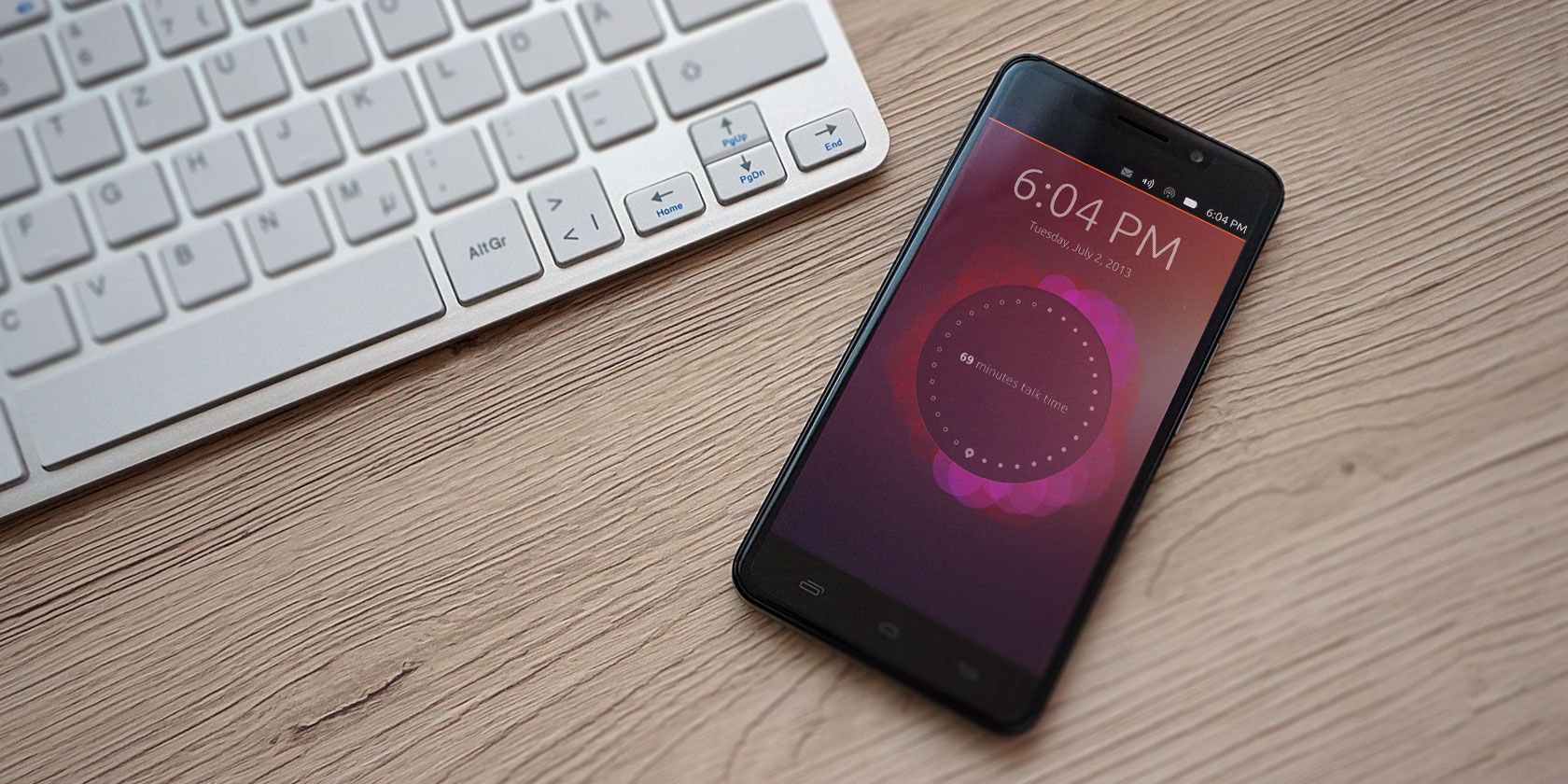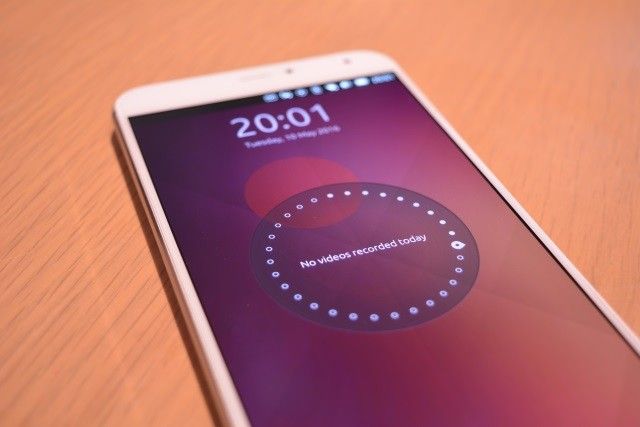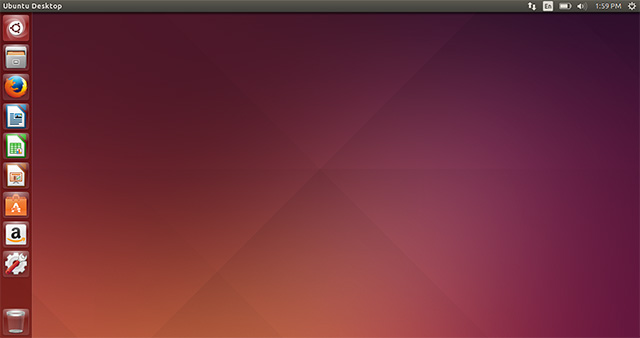Because it's a key component in the Android operating system (OS), Linux remains crucial to the mobile landscape. However, while Android employs a Linux kernel, it's far from just another Linux distribution.
But Linux for mobile devices offers a completely different experience. Learn why Linux mobile is a great option, as well as drawbacks to switching from your favorite mobile OS.
7 Reasons You Should Consider Mobile Linux OSes
Linux for mobile devices range from Android which utilizes a Linux kernel, to Ubuntu Touch and Sailfish OS. Although it has yet to permeate the consumer space, there are plenty of reasons to try out a mobile version of Linux.
1. Security-Oriented
Unsurprisingly, Linux for mobile boasts extreme privacy. That's a major downside of Android and iOS. Like its desktop counterparts, mobile Linux prioritizes security. Sailfish OS, a Finnish open-source Linux platform based on Nokia's Meego Linux, features end-to-end encryption and MDM (Mobile Device Management). Plus, there's optional local algorithm support. Because of its beefy security from malware, Linux operating systems surpass Windows. Mobile security is one of the main reasons you should try Ubuntu Touch. Although Canonical abandoned its Ubuntu Touch project as well as Unity, the project lives on with development from UBports so it's still a usable Linux mobile OS.
2. Operating System Upgrades
With Android operating systems, OS updates are pretty sporadic. Upgrades depend on the device as well as carrier. Whereas a phone on one carrier may receive an update to a newer Android version, the same device on a different carrier may miss out. Often the OS that comes standard at the time of purchase is the one you're relegated to for the lifetime of that device.
However, with mobile Linux, you benefit from constant updates. For instance, Plasma Mobile offers users rolling updates. Of course, if a project gets canceled that means no additional updates. But on Android when a new iteration comes out, most older devices don't gain access to an update anyway.
3. Compatibility With Linux Desktops
Admittedly, Android and iOS boast the large and well-established app catalogs. Nevertheless, mobile Linux offers desktop app compatibility. Therefore, the likes of OpenOffice, LibreOffice, and Rhythmbox run on Linux devices. Granted, adapting those to a touch interface is a development challenge. Nevertheless, compatibility is the first step.
Ubuntu Touch touted convergence as a main selling point -- that is, the ability to hook up a keyboard and mouse and run a mobile Linux OS as a desktop distro. The principle was a single-user experience which spanned the entire array of devices, from desktops and laptops to tablets and phones. To achieve this, Canonical accounted for responsiveness across the various mediums. This trend appears in the Android space with MHL-enabled devices, and more specifically with the Samsung Galaxy S8 which comes with its DeX desktop environment. Convergence is available for Plasma Mobile as well.
4. Unadulterated OS Experience
Among the many reasons users prefer Linux over other operating systems is its pure experience. Android devotees often flock to vanilla Android experiences as found in phones such as the Google Pixel. On Linux mobile platforms you won't find much if any, bloatware. This fosters fast operations which won't lag and more importantly delivers an open atmosphere.
5. Lots of Customizations
Linux itself is customizable with everything from comprehensive OSes to modular installations. On the small screen, Linux is adaptable and flexible. Plasma Mobile, a Linux-based operating system for touchscreen devices, runs on Kubuntu and is compatible with the Google Nexus 5. It's capable of running not only apps for Ubuntu phones, but Android apps as well. That's a complete game changer. It's this sort of open and malleable environment which makes Linux for mobile a fantastic choice.
6. You Can Dual Boot
Thinking of trying out Linux on your mobile device? You don't have to choose between Linux and Android. While it's common knowledge that you can dual boot on a desktop or laptop, it's not as well-known that you may dual boot mobile devices. This means you don't have to choose between Android and Linux mobile. Instead, run both side by side. Chances are if a phone supports multiple operating systems, you can snag custom ROMs. Accordingly, your phone gains additional usefulness in its versatility. As such, expect a longer life from a phone which can dual boot and run custom ROMs.
7. Snappy Experience
Linux distros use fewer system resources, and the same holds true for mobile devices. While your Android or iPhone may become sluggish, that's unlikely to happen using a mobile Linux distro. My introduction to Linux came when I was searching for a lightweight OS for an aging computer. Similarly, Linux on mobile provides increased responsiveness.
3 Potential Mobile Linux Drawbacks
Yet mobile Linux isn't up to where Android and iOS are currently in the mobile space.
1. Too Few Apps
It's not necessarily lack of apps, but missing apps you're used to. At this point, most mobile developers are either focusing on Android or iOS. Even the juggernaut of Windows couldn't permeate the mobile space with its Windows Phone. Unfortunately, Linux is far behind in the mobile space, at least from the perspective of user expectations. You won't find many apps you're accustomed to such as Netflix, for Android mobile.
But the likes of Plasma Mobile have the right idea. That's inclusivity. Since Plasma Mobile can run Sailfish OS, GTK, and Ubuntu Touch apps in addition to Android applications, there's a solution to this issue. Tizen also includes Android app compatibility. Yet compatibility isn't perfect, though app compatibility varies across Android OSes as well.
2. A Hard Time With Hardware
Arguably the biggest detriment to Linux mobile taking over is the lack of hardware. There's compatibility with phones like the OnePlus and Nexus 5, but not many vendors working directly with Linux mobile OSes. In turn, this means that for those interested in using Linux on a mobile device are limited to a do-it-yourself project. If you're a Linux user, chances are you have no qualms about opting for a DIY route. Still, it's tough to encourage widespread adoption without readily available devices.
3. Doubts Over the Future of Mobile Linux
It's rough when the likes of Canonical nix their own Linux mobile OSes. Similarly, Firefox dropped its Firefox OS for phones. But plenty of Linux mobile operating systems continue. Notably, Plasma Mobile is a spectacular KDE-based mobile OS capable of running Ubuntu and Android apps. Even after discontinuation, watch for community continued releases of Linux for mobile. Sure, there's still hope for the Linux desktop. But don't expect the year of the Linux phone anytime soon.
Which Linux Mobile OSes Are Available?
Ubuntu Touch lives on through UBPorts. There's also Plasma Mobile which stands as your best bet in the mobile Linux landscape. Sailfish OS presents Linux for mobile gadgets, and there's Tizen too. So there's plenty of choice for users. There are pros and cons to each such as Android app compatibility on Sailfish, Tizen, and Plasma Mobile. Of course, you'll need to ensure device compatibility which really dictates which mobile OS you can choose.
Should You Switch?
Despite being a huge Linux advocate, I'll say yes and no. You should at least try a mobile version of Linux. The best scenario is a dual boot where you retain access to an Android operating system and get a Linux OS as a dual boot. Of course, a dual boot set up has its advantages and disadvantages. It's even trickier on mobile than a desktop. If you aren't too attached to your Android or iOS apps, by all means switch, however.
Similarly, if you have multiple phones to use, you might consider a Linux phone as a dedicated mobile device. The best scenario is if you have an aging tablet lying around, Linux for mobile could be a means to resurrect it and breathe new life into an ancient device.
Phoning It In: Why You Should Use Mobile Linux
There are tons of incentives for using a mobile version of Linux. At the very least, it's a fun project that only requires an old phone, some time, and patience. The UBports continuation of Ubuntu Touch is an excellent mobile Linux OS to try, but Plasma Mobile might be your best bet. Now that you've probed the Linux mobile OS space, learn how to try out Ubuntu Touch, and read if you should get an Ubuntu Touch tablet or phone.
Despite being a major Linux advocate, I haven't switched to a mobile Linux operating system permanently. That's largely on account of device difficulty, and being ingrained in the Android ecosystem. It's the same reason that once settling on a certain operating system, many users don't switch. However, mobile Linux distros hold many advantages such as enhanced security, little to no lag, and absence of bloatware. Ultimately, while it's difficult to recommend as a daily driver, a mobile Linux OS is ideal as a dual boot or on a second phone. Alternately, try refreshing an old tablet with Linux.
Are you using a Linux mobile operating system? Which mobile OSes do you recommend?





